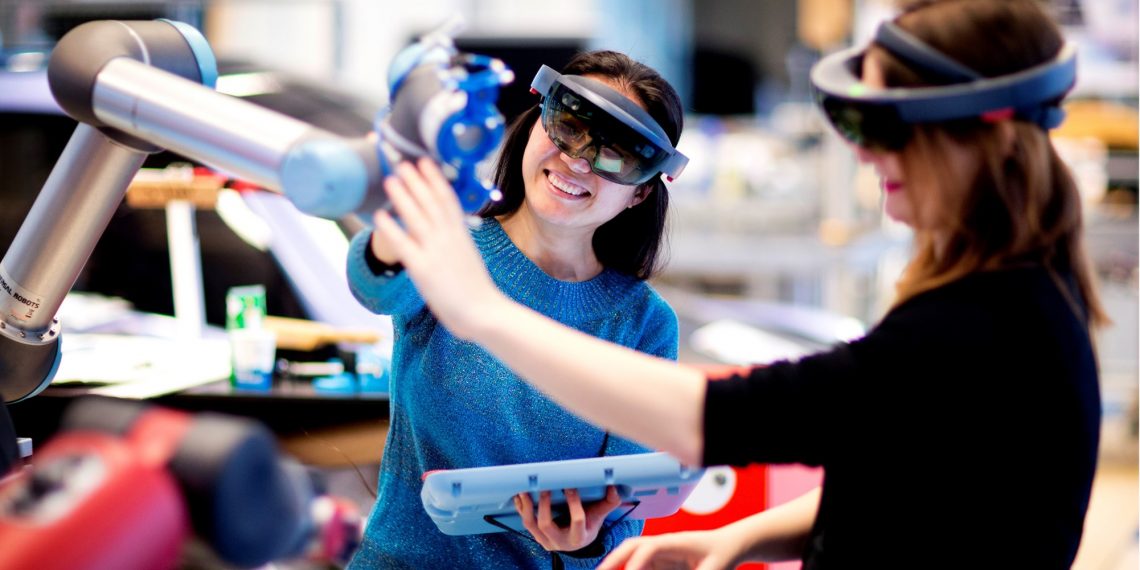The kick-off online meeting of the Mirrorlabs project took place on March 24. This project aims to create a software architecture that facilitates the integration of virtual and augmented reality and robots. INESC TEC is one of the project’s partners, through the Centre for Robotics in Industry and Intelligent Systems (CRIIS) and the Centre for Enterprise Engineering Systems (CESE).
The generation of extended reality visualisations in cyber-physical production systems has educational applications, but it also has great research potential, particularly concerning studies carried out to determine the principles for human-machine interaction in the context of Industry 4.0.
Since several research institutions have an identical set of equipment, such as collaborative robots and extended-reality headsets, there’s an opportunity to develop a common and easy-to-use infrastructure that enables the comparison of results and the sharing of information, tutorials and algorithms.
At the same time, this infrastructure empowers small and medium-sized companies to experiment and initiate the development of technologies related to production systems based on human-robot collaboration.
Marcelo R. Petry, Gustavo Emanuel Barbosa Teixeira and António Paulo Moreira (CRIIS) and Ana Cristina Mesquita Cortez de Oliveira Barros (CESE) are the INESC TEC researchers involved in the project. Mirrorlabsstarted in January 2020 and will run for 12 months.
There are seven international partners involved in this project, funded by EIT Manufacturing: INESC TEC – the only Portuguese institution involved -, TU Delft (the Netherlands), Aalto University (Finland), University of Tartu(Estonia), TU Braunschweig (Germany), LMS Patras (Greece) and SUPSI (Switzerland).
The INESC TEC researchers mentioned in this news piece are associated with INESC TEC and UP-FEUP.




 News, current topics, curiosities and so much more about INESC TEC and its community!
News, current topics, curiosities and so much more about INESC TEC and its community!